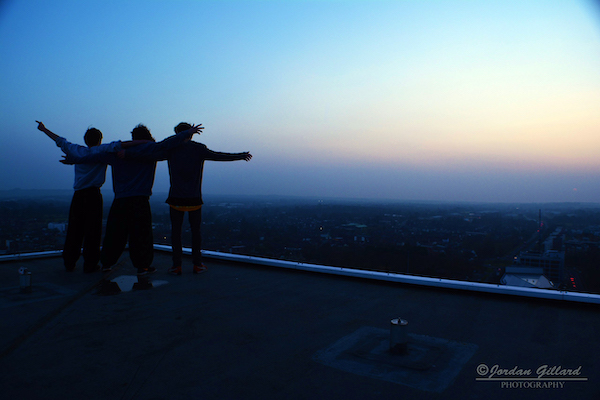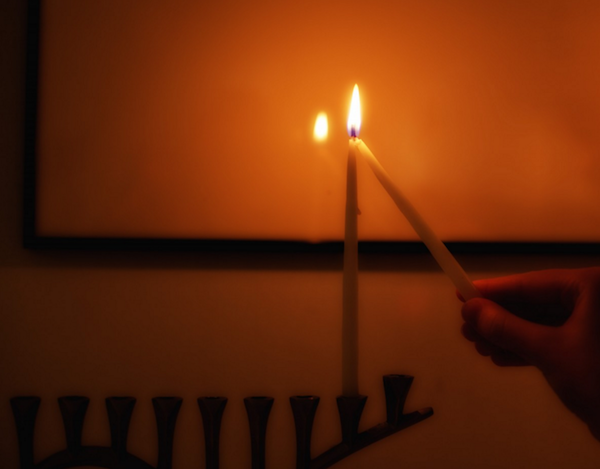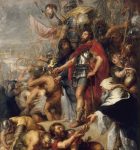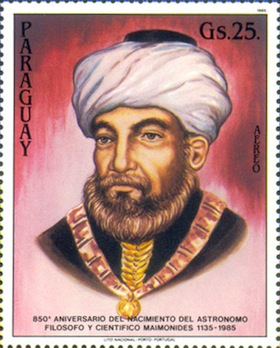The existential themes of the High Holidays are meant to create a sensitivity and appreciation of the precious significance of everyday existence. (Jordan Gillard Photography)
The themes of death and the “thinness” of human existence recur in the liturgy of Rosh Hashanah and Yom Kippur and during the entire period, beginning with the month of Elul. This is not because of a morbid desire to undermine human confidence and autonomy or to shock us into fearing God out of a sense of helplessness and sin. The existential themes of the High Holidays are meant to create a sensitivity and appreciation of the precious significance of everyday existence.
Existentialists spoke about confronting one’s mortality as a necessary condition for achieving human authenticity. Although a preoccupation with death can create nihilism and a paralyzing sense of the futility of human initiative, nevertheless, the Jewish tradition believed that the themes of human mortality and finitude could be integrated into a constructive and life-affirming vision of life.
The language of the Rosh Hashanah and Yom Kippur prayers, such as the explicit enumeration of the different ways that a human life can be destroyed, is not meant to terrorize us into self-negating submission. The stark, evocative imagery of the liturgy is aimed primarily at shattering complacency. The impact of this experience can be life-affirming insofar as it serves as a catalyst in a process of self-creation and moral renewal.
Focusing on human mortality and the contingencies that wreak havoc upon human lives heightens our sensitivity to the deadening effects of habit and routine. People often deceive themselves into believing that they can successfully defer living the kind of lives they consider worthwhile until some future time. While not questioning the importance of reflecting on the meaning of one’s life, they believe they can postpone dealing with this issue.
“Why become confused and troubled by the meaning of my life now? I can deal with it later, when I retire, when economic realities are more favourable, when I will be free of parental responsibilities.…” This attitude is naïve and self-deceptive because it ignores the real consequences of present patterns of behaviour and learning that can weaken and that ultimately extinguishes one’s natural capacity to live life deeply and seriously.
Another theme of Yom Kippur, teshuvah, is expressed in the call to return, to renew, to re-create one’s self, and in the appeal for divine forgiveness and atonement, in the recitation of “for the sin we have sinned …” and other confessional sections of the liturgy. The essence of teshuvah – the crucial principle without which this concept would be empty of meaning – is the belief that the past need not define the future. A person can break the causal chain of habit and defy the seeming necessity of repetition that suffocates spontaneity and the joy of life.
The call to teshuvah, therefore, is expressed not only in the plea to God for forgiveness and in the affirmation of God’s gracious love and reluctance to mete out punishment and retribution, but also, and most poignantly, in the repeated attempts at convincing the individual to believe in the possibility of change. The personal significance of Yom Kippur ultimately turns on the individual’s ability to believe that his or her life can be different. The major obstacle to teshuvah is not whether God will forgive us but whether we can forgive ourselves – whether we can believe in our own ability to change the direction of our lives, even minimally.
Teshuvah is grounded in the idea of an open future, in the belief that the possibilities for human change have not been exhausted, that the final chapters of our personal narratives have not yet been written. The sense of empowerment felt on Yom Kippur reflects an underlying faith in the power of the human will to break the fixed cycles of the past and to chart new possibilities for the future.
Many scholars who take issue with translating God’s name, ehyeh asher ehyeh, which was revealed to Moses at the burning bush as “I am that I am,” insist on emphasizing the future orientation of the verb ehyeh, “I will be.” For many, the Jewish concept of God must convey the idea of newness – of new spiritual possibilities in the future, of new ways of understanding and of relating to God. To sense the presence of God in one’s life is to believe in the possibility of radical surprise and of genuine human change.
Communal forms of worship must not be allowed to degenerate into automated, mind-numbing exercises in herd conformity. Our rabbis taught that, although Jews stood as a people at Mt. Sinai, each individual personally appropriated the word of God. We must not be intimidated by the High Holiday prayer book. Although we share a common liturgy, we must be capable of appropriating its significance in terms of our individual lives and concerns. Rosh Hashanah and Yom Kippur challenge us to discover the meaning of personal authenticity and self-renewal within the context of community.
Rabbi Prof. David Hartman (1931-2013) was founder of the Shalom Hartman Institute. This article was first published in September 2009. Articles by Hartman, z”l, and other institute scholars can be found at shalomhartman.org.




